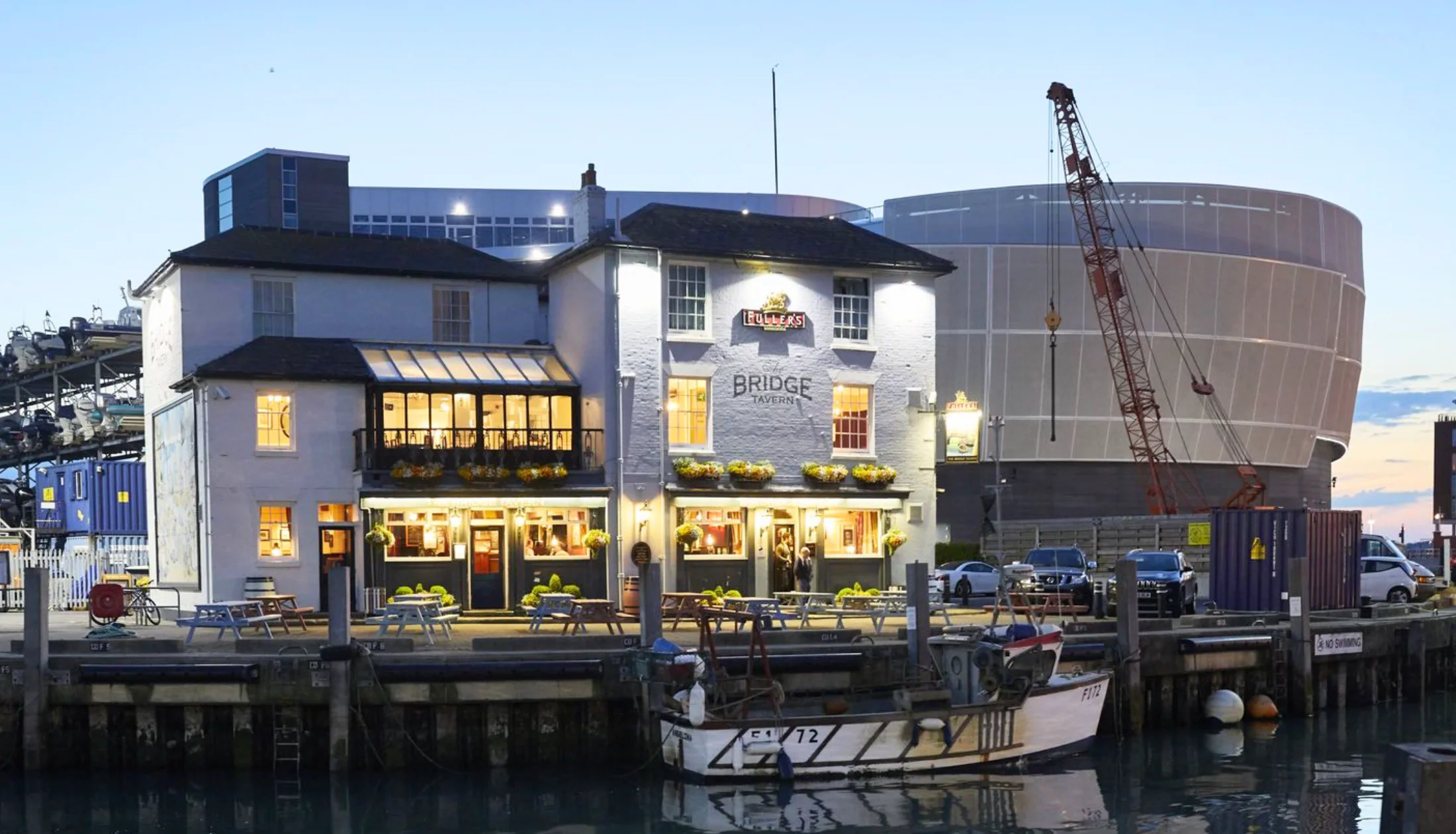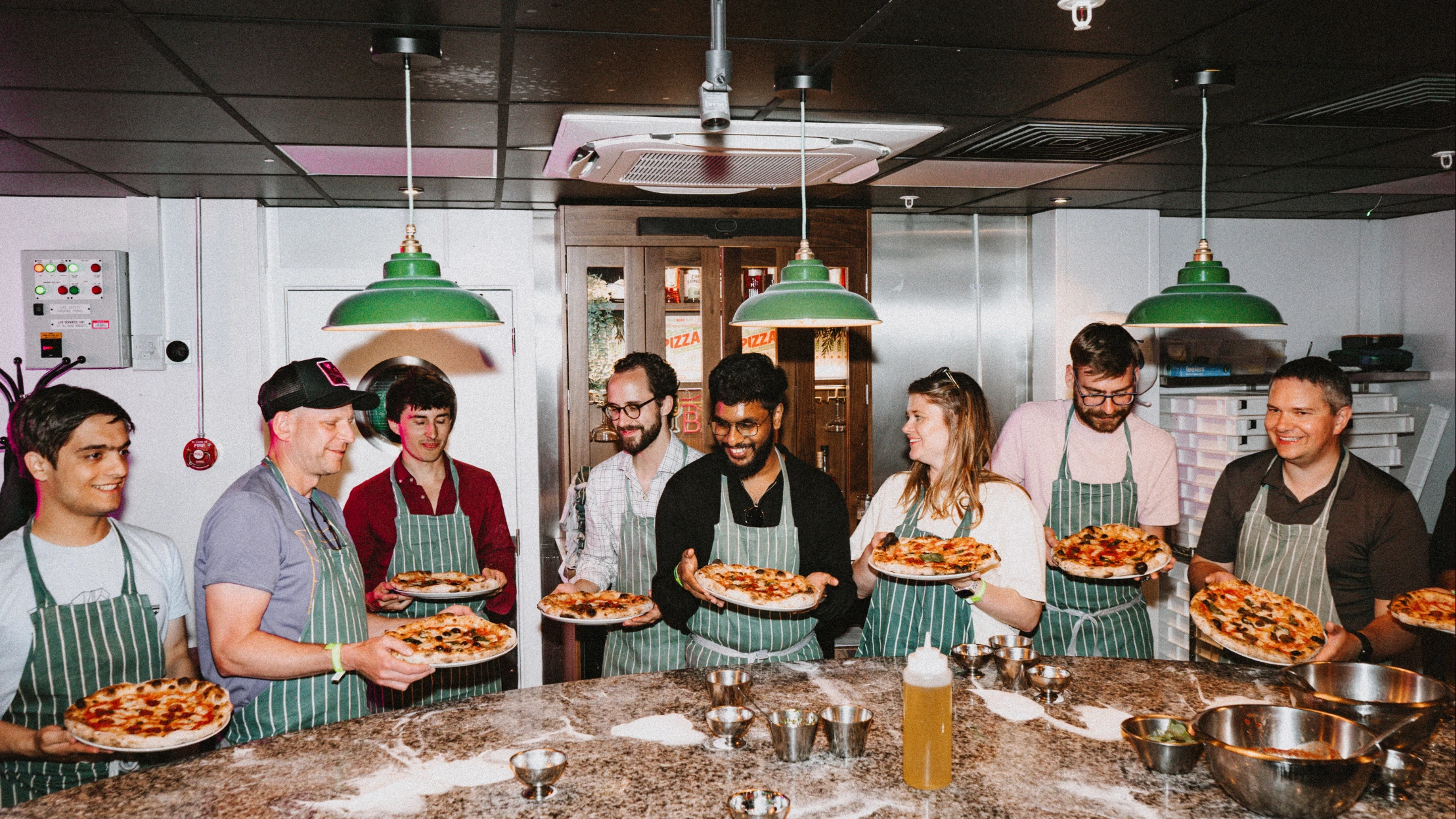Make back of house the forefront of your restaurant
At Nory, we know all about the importance of back of house efficiency.
With client after client, we see how strong back of house teams are the engine driving restaurants and their success. And we know how much depends on their makeup, their ways of working together, the ways they embrace technology, and the data you have at your fingertips.
In this guide we’ll look at building that efficiency in your team, from finding the perfect back of house team and streamlining your workflows, to managing your staff, getting training and development right, creating a strong culture, and more.
Let’s dive in.
Building the right back of house team
First it helps to have an understanding of the main back of house roles you need. All of them involve a range of skills but key among them are reliability, attention to detail, ability to work in a fast-paced – sometimes stressful – environment, adaptability, and a responsibility when it comes to safety.
Line cooks take charge of food preparation, making sure kitchen stations are clean and ready to be used, and that food is prepped and ready for cooking. They’re mainly directed by chefs and sous chefs.
Prep staff, as the name suggests, tend to take charge of prepping ingredients and being an extra pair of hands for the chef. They’ll do anything from washing and peeling to measuring and portioning ingredients.
Kitchen porters essentially keep the kitchen clean and tidy. They don’t often tend to work with food directly, instead focussing on cleaning and organising to high standards and taking deliveries.
Sous chefs are the second-in-command in the kitchen. They’ll help chefs with food prep, but their role also gives them a hand in menu-planning, managing inventory, and training.
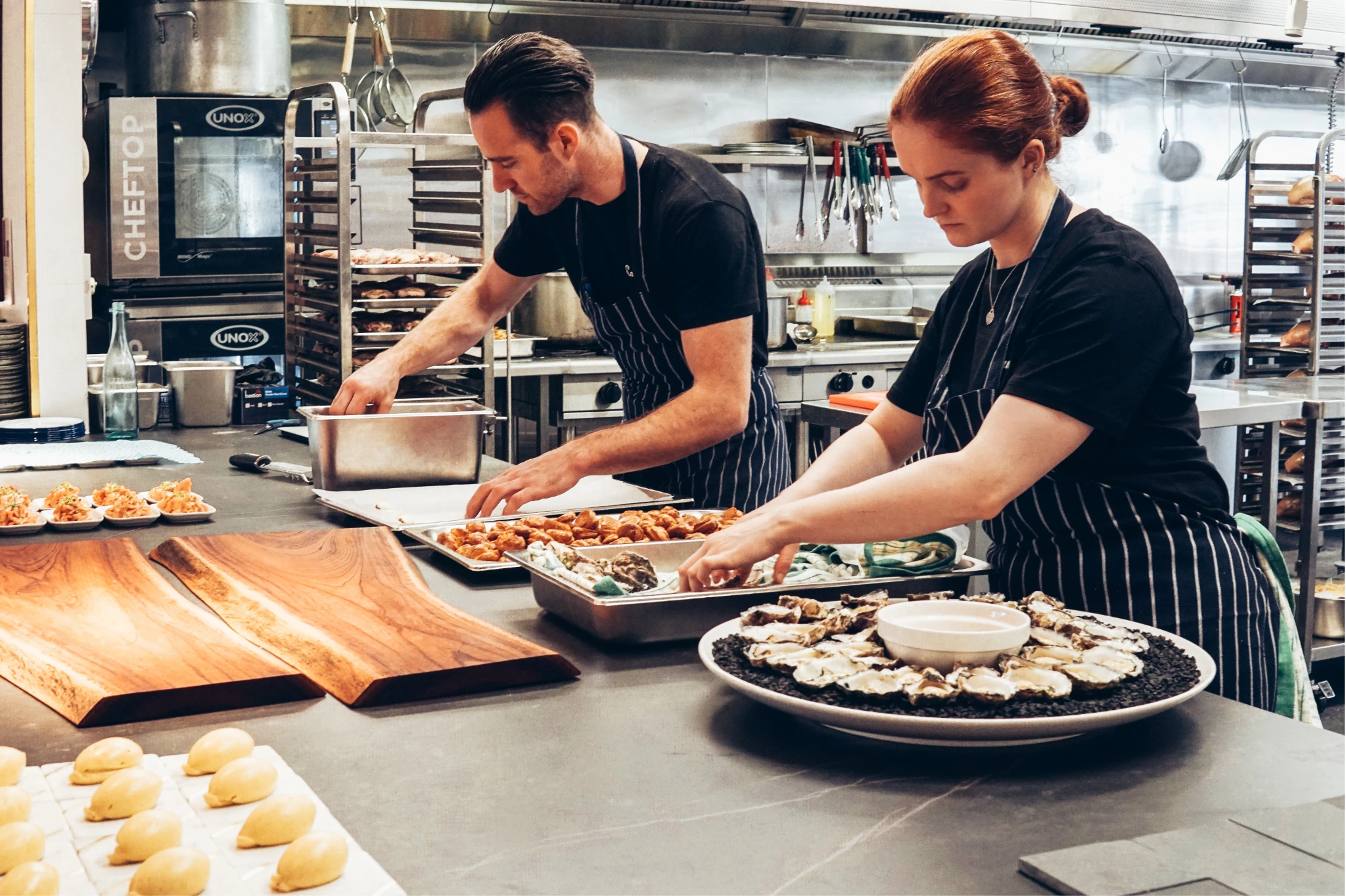
Streamlining back of house communications and workflow
Streamlining these disparate roles and responsibilities is a great way to make relatively easy gains.
Still using handwritten whiteboards or post-it notes to organise your back of house? Firstly, you need really clear handwriting. Secondly, there are more effective ways. Digital task boards allow you to clearly provide staff with real-time info, helping with co-ordination. Tasks can be updated as they’re completed or amended and can be assigned to different people, removing any ambiguity and allowing them to take ownership. You can also glean insights from these boards and track areas that need attention or that are causing hold-ups.
Mobile notifications work really well in tandem with digital boards, allowing staff to get a message when a task is assigned to them or updated, keep track of orders, set reminders, and communicate more rapidly. This kind of real-time team messaging and scheduling gives teams more clarity and co-ordination, from changing shifts and requesting time off, to reminding them of issues, or announcing updates.
Side note: This is where Nory’s AI-powered restaurant management platform can really shine, with real-time communication, easy task management, and a centralisation of insights and data that helps to streamline the way your team works.
Training and development for back of house
Structured, and ongoing, training is vital for back of house staff. It builds confidence and consistency and also makes staff want to stay longer as they feel they're developing. There's also the simple fact that better trained staff make fewer mistakes, waste less and affect your bottom line.
That also encompasses targeted training to help staff who need extra support or help in specific areas, or staff who are excelling and could be promoted. One way to tackle this is getting more experienced colleagues to act as mentors, providing ongoing insights and help, and contributing to a positive, supportive working environment.
Restaurant performance reviews are a great way to motivate employees, showing them that you care about their role and identifying ways to improve their performance.
As a result, you can boost employee retention, improve your business operations, and help your restaurant go from strength to strength.
It’s worth noting that Nory is indispensable when it comes to training and development, making it easy to streamline team management and growth.
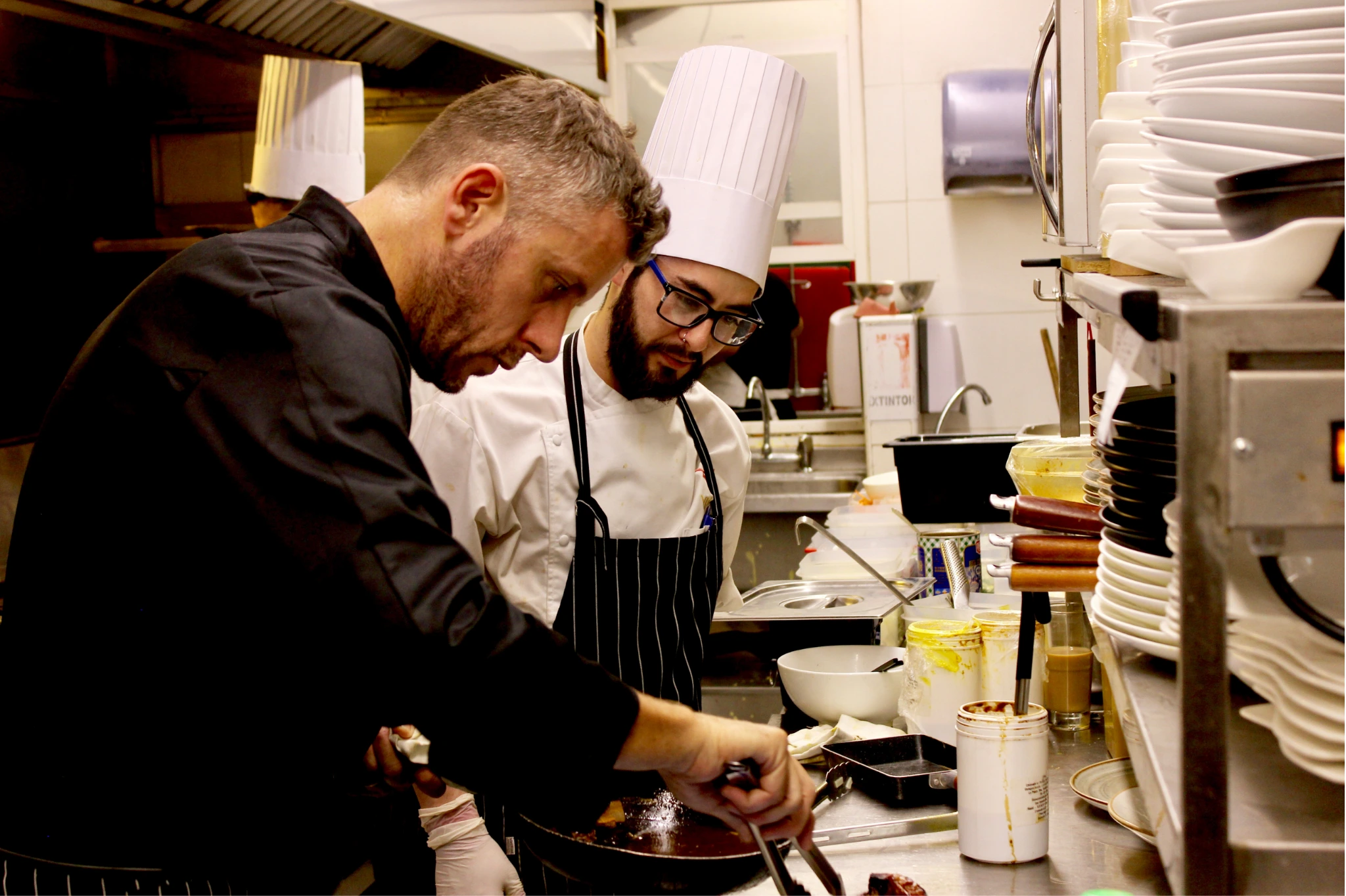
Driving accountability and kitchen culture
As well as formalised on-going training, there are plenty of daily ways to create a confident, proactive back of house kitchen team.
Kicking off the day with a meeting, and finishing with post-shift reviews give staff a time to plan and reflect, as well as raise any concerns they have, or highlight issues that could affect service during the day.
Nory’s real-time analytics dashboard also provides instant performance insights for all of your locations, allowing you to quickly identify issues and help staff make data-driven decisions at an on-site level. It’s a tool that can help you recognise staff who are performing really well, and provide you with a visualisation of team performance across locations.
Technology for operational consistency
At any restaurant, consistency is key, which is where technology can really have a big role to play in making things easier. Here are the opportunities we see with our clients:
- Digital checklists: Create easy-to-use checklists for anything from opening and closing, to cleaning and ordering, that can be monitored by managers, updated in real-time and accessed on a range of devices.
- Digital inventory: Develop accurate, up-to-date lists of ingredients which are automatically amended based on demand (connected to POS records) to cut waste and overstocking.
- Cost-tracking: Use sales data to gain insights into inventory management, forecasting demand and uncovering areas where you could make more profit, or cut more waste.
- Centralised database: Store all recipes, ingredients, prep, and compliance data in one easy-to-find repository that anyone can access to boost consistency and make training simpler.
Deep-dive: Josie's
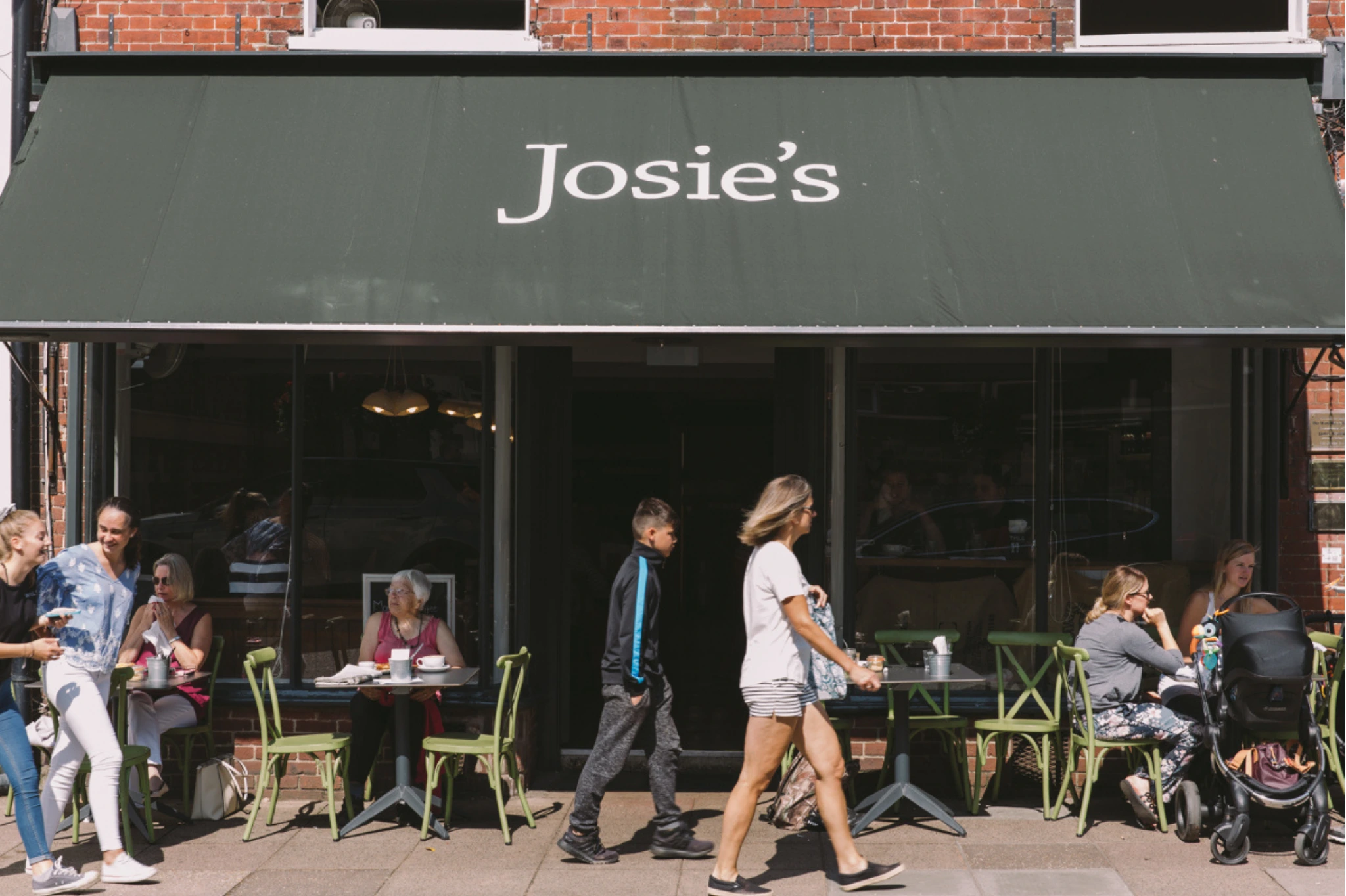
Josie’s is a family-run group of independent coffee shops in the UK employing 130+ staff. They struggled to get true visibility on business performance, with two separate systems for rostering and managing inventory proving difficult to manage.
Josie’s were using a templated roster for each venue which led to inefficiencies. Since implementing Nory’s integrated workforce solution, Josie’s has been able to drive huge improvements in efficiency: reducing cost of labour by 23% in just four months. Coupled with a rise in sales, Josie’s has seen a massive increase in productivity: with sales per labour hour increasing by 20.5% in a short space of time.
Overall, Josie’s is seeing impressive net profit increases using Nory. Josie’s management team now has real-time insight into labour efficiency metrics and the ability to engage staff en-masse through Nory’s messaging tools, alongside better visibility on inventory performance across all locations. It’s win-win-win.
The number one back of house ingredient
Nory is the AI-powered restaurant management software that guides your teams to success. By bringing all your core back of house operations together in one easy-to-use platform, Nory helps restaurants control costs and boost profitability.
